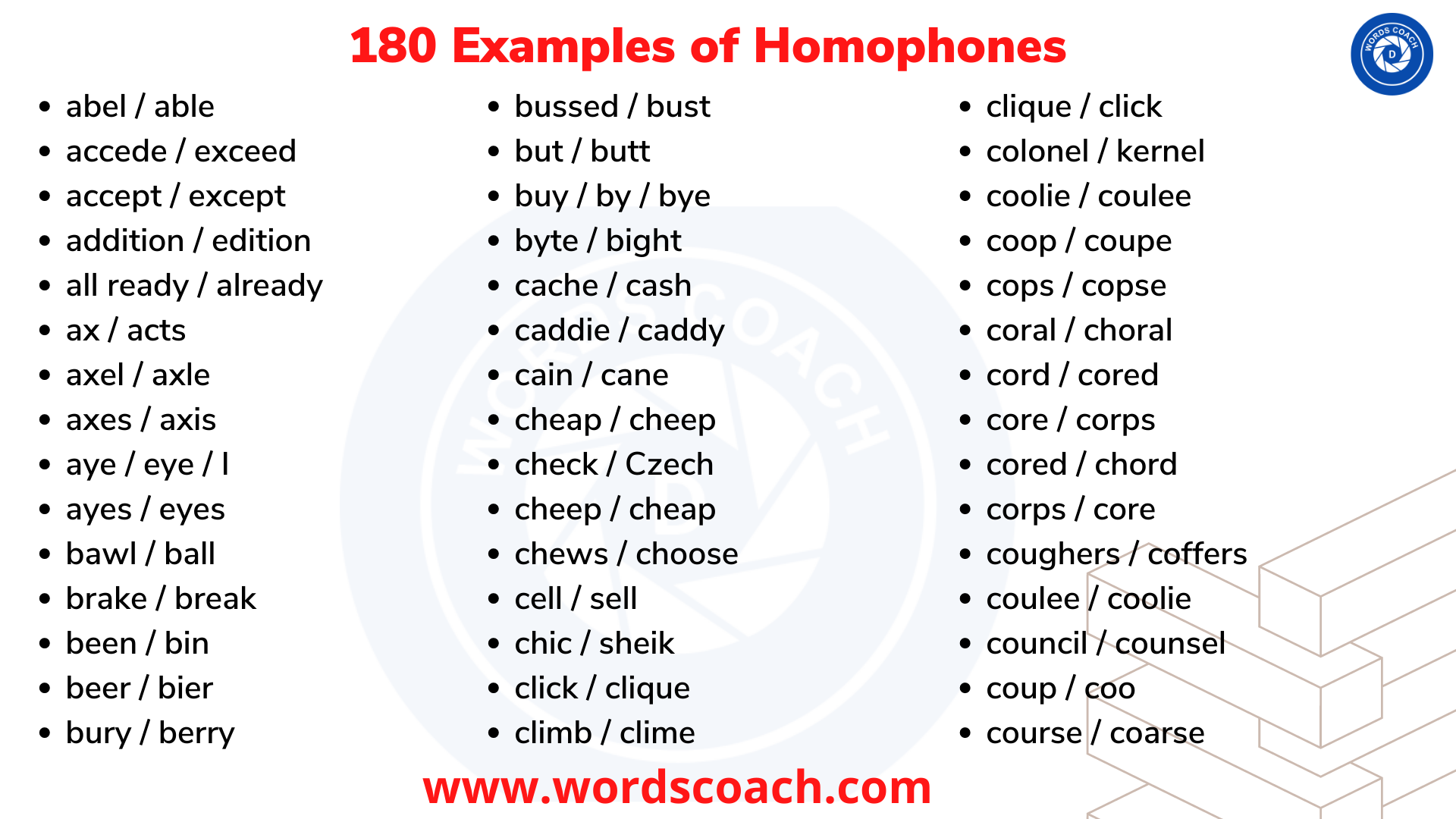List of feelings and affection word
Feelings: An emotional state or reaction.
What does Feeling mean?
Feeling is the nominalization of the verb to feel. The word was first used in the English language to describe the physical sensation of touch through either experience or perception.
Affection: A gentle feeling of fondness or liking.
What does affection mean?
1) A feeling of liking and caring for someone or something : tender attachment : fondness She had a deep affection for her parents.
2) A moderate feeling or emotion.
List of Feelings and Affection Vocabulary Word List: IELTS & GRE Exam vocabulary
Affection: A gentle feeling of fondness or liking.
Anger: Anger is an emotion characterized by antagonism toward someone or something you feel has deliberately done you wrong. Anger can be a good thing. It can give you a way to express negative feelings, for example, or motivate you to find solutions to problems. But excessive anger can cause problems.
Bravery: Courageous behavior or character.
Charity: An organization set up to provide help and raise money for those in need.
Cleanliness: The state or quality of being clean or being kept clean.
Comfort: A state of physical ease and freedom from pain or constraint.
Courage: The ability to do something that frightens one; bravery.
Courageous: Not deterred by danger or pain; brave.
Courtesy: The showing of politeness in one’s attitude and behaviour towards others.
Cowardice: Lack of bravery.
Cruelty: Cruel behaviour or attitudes.
Decency: Behaviour that conforms to accepted standards of morality or respectability.
Dishonesty: Deceitfulness shown in someone’s character or behaviour.
Enmity: A state or feeling of active opposition or hostility.
Envy: A feeling of discontented or resentful longing aroused by someone else’s possessions, qualities, or luck.
Error: The state or condition of being wrong in conduct or judgement.
Fear: An unpleasant emotion caused by the threat of danger, pain, or harm.
Friendship: You can trust them to respect your boundaries, even when you disagree with one another. Healthy friendships also involve mutual support, so a good friend won’t just expect you to help them out.
Gift: A gift or a present is an item given to someone without the expectation of payment or anything in return.
Glory: Praise, honor, or distinction extended by common consent : renown. b : worshipful praise, honor, and thanksgiving giving glory to God.
Grandeur: Splendour and impressiveness, especially of appearance or style.
Hardship: Severe suffering or privation.
Hatred: Intense dislike; hate.
Health: Health is a state of physical, mental and social well-being, not just the absence of disease or infirmity.
Holiness: The state of being holy.
Honesty: The quality of being honest.
Hunger: A very great need for food : A severe lack of food.
Insult: Speak to or treat with disrespect or scornful abuse.
Joy: A feeling of great pleasure and happiness.
Justice: Just behaviour or treatment.
Kindness: The quality of being friendly, generous, and considerate.
Knowledge: Facts, information, and skills acquired through experience or education; the theoretical or practical understanding of a subject.
Labour: Labor is the amount of physical, mental, and social effort used to produce goods and services in an economy.
Liberality: The quality of giving or spending freely.
Liberty: Broadly speaking, liberty is the ability to do as one pleases. It is a synonym for the word freedom.
Love: An intense feeling of deep affection.
Malice: The desire to harm someone.
Meanness: unkindness, spitefulness, or unfairness.
Pity: A feeling of sadness or sympathy for the suffering or unhappiness of others.
Poverty: The state of being extremely poor.
Purity: The condition or quality of being pure.
Quality: The standard of something as measured against other things of a similar kind; the degree of excellence of something.
Regard: Consider or think of in a specified way.
Relief: A feeling of reassurance and relaxation following release from anxiety or distress.
Respect: Respect is a way of treating or thinking about something or someone.
Revenge: The action of hurting or harming someone in return for an injury or wrong suffered at their hands.
Rudeness: Lack of manners; discourteousness.
Shyness: The quality or state of being shy.
Sorrow: A feeling of deep distress caused by loss, disappointment, or other misfortune suffered by oneself or others.
Sympathy: Feelings of pity and sorrow for someone else’s misfortune.
Timidity: Lack of courage or confidence.
Ugliness: The quality of being unpleasant or repulsive in appearance.
Weakness: The state or condition of being weak.
List of Feelings and Affection Vocabulary Word List
- Affection
- Anger
- Bravery
- Charity
- Cleanliness
- Comfort
- Courage
- Courageous
- Courtesy
- Cowardice
- Cruelty
- Decency
- Dishonesty
- Enmity
- Envy
- Error
- Fear
- Friendship
- Gift
- Glory
- Grandeur
- Hardship
- Hatred
- Health
- Holiness
- Honesty
- Hunger
- Insult
- Joy
- Justice
- Kindness
- Knowledge
- Labour
- Liberality
- Liberty
- Love
- Malice
- Meanness
- Pity
- Poverty
- Purity
- Quality
- Regard
- Relief
- Respect
- Revenge
- Rudeness
- Shyness
- Sorrow
- Sympathy
- Timidity
- Ugliness
- Weakness
List of Feelings and Affection Idioms
- Wear your heart on your sleeve – Meaning: To openly display one’s emotions or feelings.
For example: She always wears her heart on her sleeve, so you always know how she feels. - Head over heels in love – Meaning: Deeply and completely in love.
For example: Ever since they met, he’s been head over heels in love with her. - Bite the bullet – Meaning: To endure a painful or difficult situation with courage.
For example: She had to bite the bullet and tell him the truth, even though it might hurt him. - Cold shoulder – Meaning: To deliberately ignore or show no interest in someone.
For example: After their argument, he gave her the cold shoulder for days. - Jump for joy – Meaning: To be extremely happy or excited about something.
For example: When she got the job offer, she jumped for joy. - Butterflies in one’s stomach – Meaning: Nervousness or excitement felt before a significant event.
For example: Before the performance, she had butterflies in her stomach. - Love at first sight – Meaning: Falling in love immediately upon meeting someone for the first time.
For example: It was love at first sight when they met in the bookstore. - Mixed feelings – Meaning: Having both positive and negative emotions about something.
For example: I have mixed feelings about leaving my hometown for college. - Piece of cake – Meaning: Something very easy to do.
For example: Winning the game was a piece of cake for them. - Heart skips a beat – Meaning: To feel a sudden, brief moment of excitement, fear, or love.
For example: When he saw her walking towards him, his heart skipped a beat. - To be smitten with someone – Meaning: To be strongly attracted to or in love with someone.
For example: From the moment they met, he was smitten with her. - Break the ice – Meaning: To initiate conversation in a social setting to relieve tension or awkwardness.
For example: He told a joke to break the ice at the party. - Hit it off – Meaning: To immediately form a positive connection or rapport with someone.
For example: They hit it off at the conference and have been friends ever since. - A shoulder to cry on – Meaning: Someone who provides emotional support during difficult times.
For example: After the breakup, she was grateful to have her best friend as a shoulder to cry on. - Let the cat out of the bag – Meaning: To reveal a secret or disclose information that was supposed to be kept confidential.
For example: She accidentally let the cat out of the bag about the surprise party.
Remember, idioms can vary slightly in usage and meaning depending on the context, so it’s essential to consider the context when using them.
Download the IELTS Prep by WordsCoach











helpful
Normally I do not learn post on blogs, however I wish to say that this write-up very forced me to take a look at and do so! Your writing style has been amazed me. Thanks, quite great article.
Thanks again for the blog.Really looking forward to read more. Will read on…